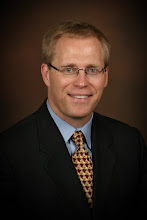While scanning one of my newly book-marked blogs managed by book critics today's posting regarding one poet's (Nicholas Christopher) experience as a freshman at Harvard University really resonated with me. I have copied an excerpt of this posting below for readers to consider --
http://www.bookcriticscircle.blogspot.com/
Friday, August 17, 2007
"In Retrospect: Robert Lowell at Harvard, Fall 1969"
In the fall of 1969, as a freshman, I applied, and was admitted, to Robert Lowell's advanced poetry workshop at Harvard, a coveted class with a limited enrollment of ten. A couple of days later, before the first class meeting, I was called in to see the director of undergraduate studies in the English Department. He told me in no uncertain terms that I could not take the class because I had taken none of its prerequisites. Furthermore, it was not a class open to freshman.
Now I attended university 15 years after Mr. Christopher's freshman year and not at Harvard but the bureaucrats still controlled things because in my day we had to stand in lines in the grand ballroom of the student union to register/beg to get in classes we wanted. However, as I graduated the entire class registration system was automated so that you could add/drop/switch classes via a telephone call in system using a system of codes found in the course catalog -- a huge improvement via technology that took some power away from the whims of bureaucrats like the "director of undergraduate studies" mentioned in Mr. Christopher's posting.
Hopefully some reader out there can help me remember but years ago I read a short book/article which described how the the first universities operated. As I remember the book I read -- lecturers/learned men (yes "men" since women were not full citizens in the 12th/13th centuries -- "professors" in today's language) would set up a booth in the town square from which they would lecture on their area of expertise. Thus an astronomer would lecture in one part of the public square/court yard while a poet might be speaking in another corner of the square. Then at the end of their lectures the onlookers would contribute a few coins to compensate the lecturer - assuming the onlookers felt they actually learned something.
Now contrast that free market system against today's tenured-faculty/teacher assistants system whereby students are recipients not consumers of lectures because today's students play a flat rate tuition amount (assuming full time student status) and then must use whatever professor/teacher assistant the university assigns to them based on the classes/time slots the students select.
I prefer the original university model and see the potential for this model to develop again due to the advances we have seen in Internet-based education programs.
Markets not monopolies,
Todd
Friday, August 17, 2007
Subscribe to:
Post Comments (Atom)

No comments:
Post a Comment